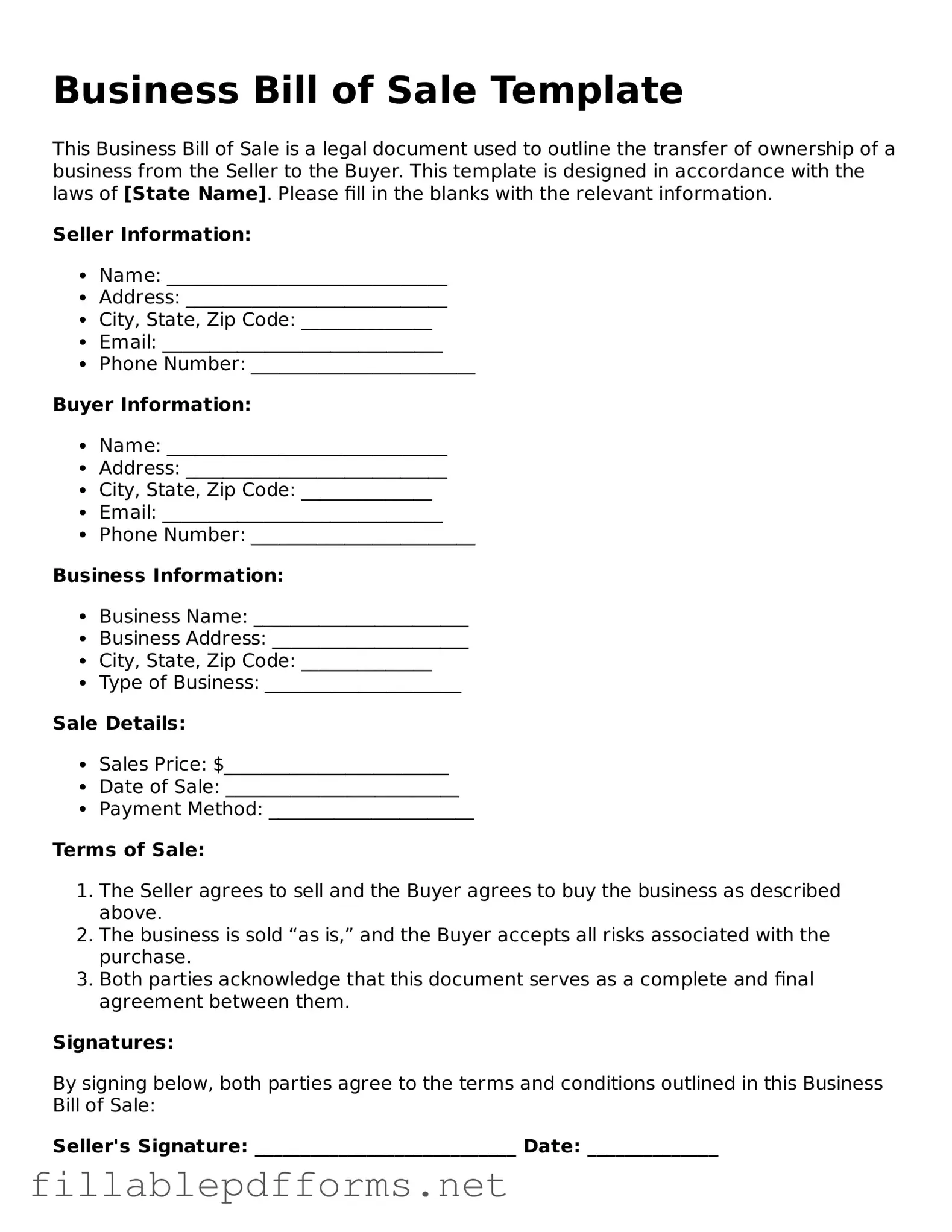Blank Business Bill of Sale Template
A Business Bill of Sale is a legal document used to transfer ownership of a business or its assets from one party to another. This form outlines the details of the transaction, including the items being sold and the terms of the sale. It serves as proof of the transfer and protects both the buyer and the seller in the process.
Launch Editor Here

Blank Business Bill of Sale Template
Launch Editor Here

Launch Editor Here
or
▼ Business Bill of Sale PDF
Almost there — finish the form
Complete Business Bill of Sale online fast — no printing, no scanning.